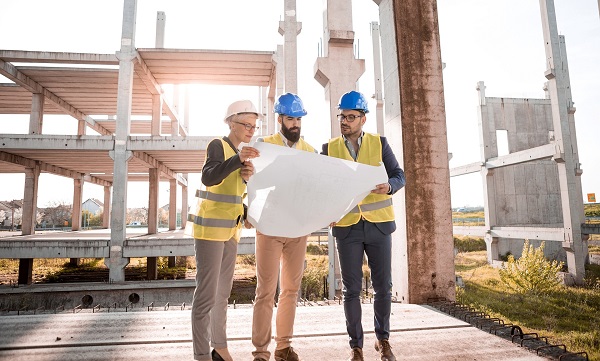Construction projects are often complex, and require significant planning and preparation to be successful. This is where pre-construction comes into play. Pre-construction is the phase of a construction project where the planning and preparation takes place, before any actual construction work begins. It is a crucial phase of the construction process, as it helps to ensure that the project is well-planned and well-executed.
Architectural consulting services provide critical expertise and guidance for construction projects. These services typically involve working closely with architects and engineers to ensure that the project is designed and built to the highest standards of quality.
In this article, we will explore the importance of pre-construction, and why it is critical to the success of any construction project. We will also look at some of the key elements of pre-construction planning, and how they can help to ensure a successful project outcome.
Building construction design-assist services are an increasingly popular approach to construction projects. These services involve working with a team of experts to develop a detailed plan for the project, with input from architects, engineers, and construction professionals. By involving all of these stakeholders in the design process, construction design-assist services can help to ensure that the project is well-planned, well-executed, and built to the highest standards of quality.
Why Pre-Construction is Important?
Pre-construction is important for a number of reasons. First and foremost, it helps to identify and address potential issues and risks before they become problems. By thoroughly planning and preparing for a project, construction teams can identify any potential issues or risks early on, and take steps to mitigate them. This can help to prevent costly delays, and ensure that the project stays on track.
Another key benefit of pre-construction is that it allows for better cost control. By thoroughly planning a project before construction begins, construction teams can get a better idea of the costs involved. This can help to prevent unexpected costs from arising, and ensure that the project stays within budget.
Finally, pre-construction can also help to improve the overall quality of the project. By carefully planning and preparing for a project, construction teams can ensure that the project is built to the highest standards of quality. This can help to ensure that the project meets the needs of its intended users, and that it is built to last.
Architectural and structural peer review services are an important part of the construction process. These services involve a team of experts reviewing the plans and designs of a construction project to identify any potential issues or areas for improvement. By having a fresh set of eyes reviewing the plans, architectural and structural peer review services can help to identify design flaws, errors, and omissions, which can help to prevent costly mistakes during construction. Additionally, these services can help to ensure that the project is built to the highest standards of quality and safety.
Building Information Modeling (BIM) is a powerful tool for construction projects, allowing for the creation of detailed, accurate, and comprehensive 3D models of buildings and infrastructure. With the rise of digital technologies, BIM has become an increasingly important tool for architects, engineers, and construction professionals. Building Information Modeling can help to streamline the design process, reduce costs, and improve collaboration between stakeholders.
Key Elements of Pre-Construction
There are a number of key elements that are involved in pre-construction planning. These include:
- Project Scope: The project scope defines what the project is intended to achieve, and outlines the specific goals and objectives of the project. It is important to clearly define the project scope before any construction work begins, as this will help to ensure that the project stays on track.
- Site Analysis: A site analysis is an evaluation of the site where the construction project will take place. It helps to identify any potential issues or risks that may affect the project, and to determine the best approach for building on the site.
- Design: The design phase of pre-construction involves developing a detailed plan for the construction project. This may involve working with architects and engineers to develop plans and blueprints for the project.
- Budgeting: Budgeting is a critical element of pre-construction planning, as it helps to ensure that the project stays within budget. This involves estimating the costs involved in the project, and developing a budget that takes into account all of the costs associated with the project.
- Scheduling: Scheduling involves developing a timeline for the project, and determining when each phase of the project will be completed. This can help to ensure that the project stays on track, and that all of the work is completed on time.
In conclusion, pre-construction planning and management is a critical stage in any construction project. It involves careful analysis and evaluation of the project requirements, including budget, timelines, resources, and other critical factors. The objective of pre-construction planning is to ensure that the construction project is executed effectively, efficiently, and with minimal risks.
Overall, a well-executed pre-construction planning process sets the stage for a successful construction project, ensuring that it is delivered on-time, within budget, and to the satisfaction of all stakeholders involved. Therefore, investing adequate time and resources in the pre-construction planning stage is critical to the success of any construction project.















